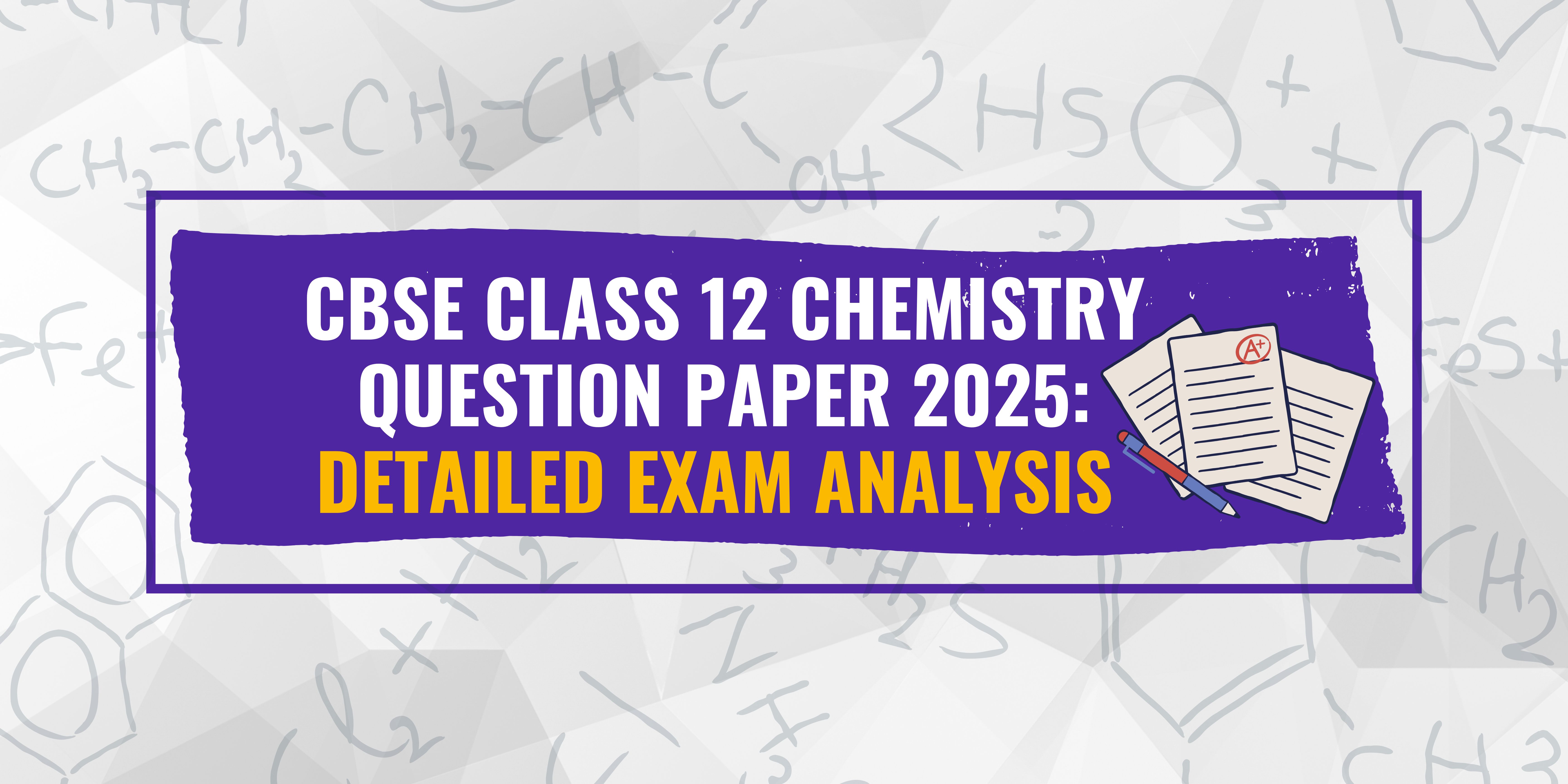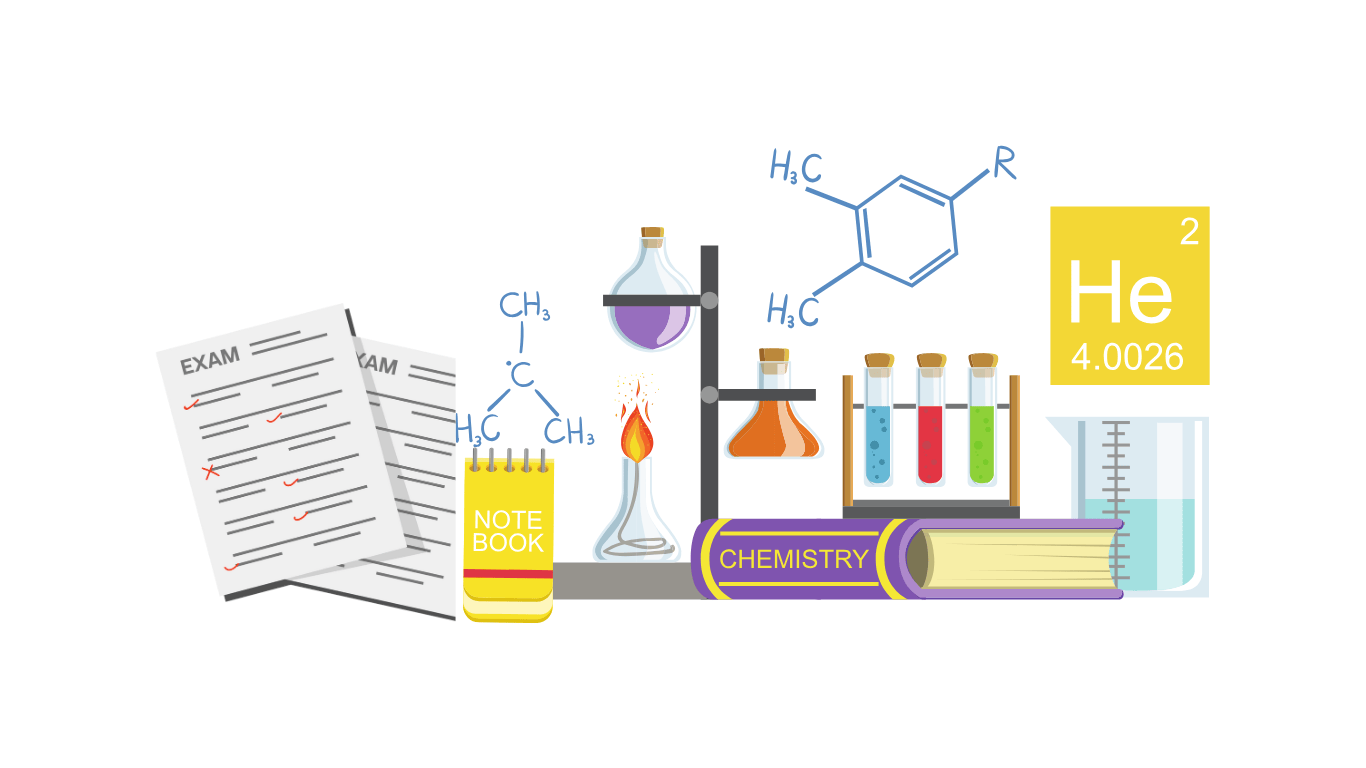CBSE Class 12 Chemistry Question Paper 2025: Detailed Exam Analysis





The CBSE Class 12 Chemistry Exam 2025 was conducted on February 27, 2025, from 10:30 AM to 1:30 PM. This was one of the most anticipated board exams, with lakhs of students appearing across the country.
Now that the exam is over, students are eager to know:
This detailed question paper analysis will help students understand the difficulty level, important topics, student reactions, and expert reviews. Let’s dive in!
The Chemistry Board exam followed the usual pattern, testing students on physical, organic, and inorganic chemistry concepts.
| Date of Exam: | February 27, 2025 |
| Exam Timing: | 10:30 AM – 1:30 PM (3 hours) |
| Total Marks: | 100 (Theory - 70, Practical - 30) |
| Passing Marks: | 33% (Combined theory + practical) |
| Paper Structure: | MCQs, Short Answer, Long Answer |
| Overall Difficulty Level: | Moderate (NCERT-based) |
Most students found the paper student-friendly, with balanced difficulty across all three chemistry sections.
Understanding the question paper pattern and difficulty level is essential for:
The CBSE Class 12 Chemistry question paper was well-structured and balanced across different sections.
Section | Details |
Section A | MCQs (1 mark each) to test basic concepts
|
Section B | Short answer questions (2 marks each) with direct explanations
|
Section C | Case-study & competency-based questions (3 marks each)
|
Section D | Long answer questions (5 marks each) that required a deep understanding
|
The practical component (30 marks) assessed students' experimental skills, lab records, and viva performance.
Student feedback was mixed, with many calling the exam balanced and NCERT-based, while others found certain sections challenging.
The overall difficulty level of this year’s CBSE Class 12 Chemistry exam was moderate. It was neither too easy nor too difficult, making it fair for students who had prepared well. The questions were mostly based on NCERT textbooks, and there were no surprises.
Physical Chemistry: Moderate
Organic Chemistry: Easy to Moderate
Inorganic Chemistry: The Most Challenging Section
Case-Study Questions: Simple and Scoring
Assertion-Reasoning Questions: A Bit Tricky
Although CBSE does not release an official answer key, many coaching institutes provide unofficial answer keys for self-evaluation.
How to prepare for next year’s Chemistry exam? Here are some proven study tips from toppers and experts:
Use this step-by-step study approach to ace chemistry!
Week 1-2: Revise NCERT thoroughly, making short notes.
Week 3-4: Practice previous years’ question papers and sample papers.
Week 5: Focus on numerical problems and reaction-based questions.
Week 6: Attempt full-length mock tests under timed conditions.
Last Week: Quick revision and solving one mock paper daily.
Want to score better? Join Interval Learning, an online tuition platform designed for effective Chemistry preparation. Enroll now and improve your performance.
No, the exam was moderate and mostly NCERT-based, making it easier for well-prepared students.
Many students found Inorganic Chemistry the toughest due to tricky conceptual questions.
Unofficial answer keys are available from coaching institutes, YouTube, and educational websites.
Focus on NCERT textbooks, solve previous years’ papers, and practice time management.
Yes, all three sets were nearly identical in difficulty and content to ensure fairness.